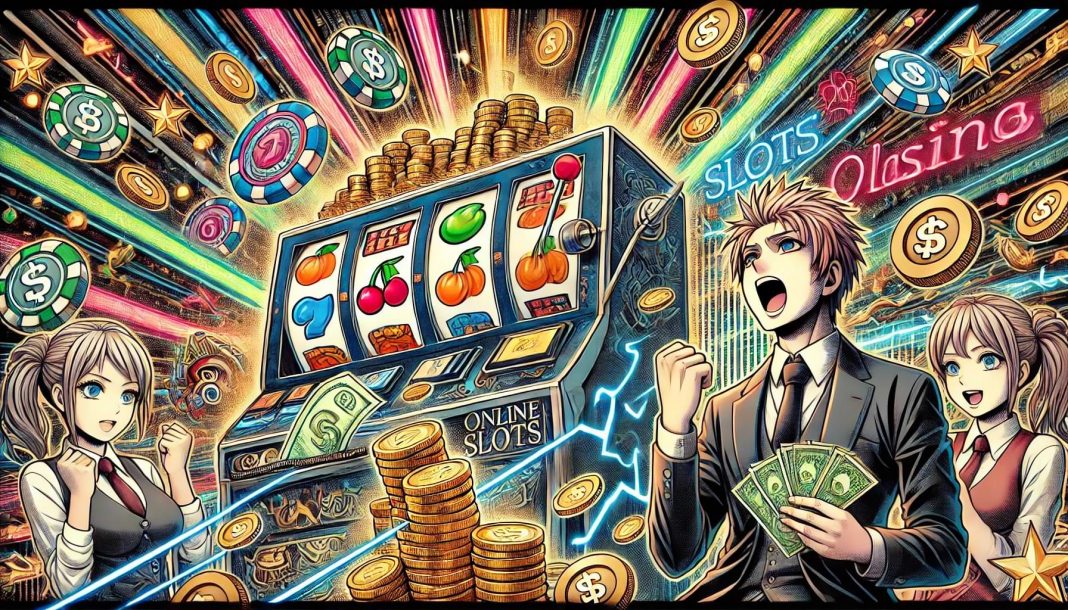The recent study “Gambling and Virtual Reality: Unraveling the Illusion of Near-Misses Effect,” published in Frontiers in Psychiatry, offers an innovative exploration into the psychological and physiological mechanisms underpinning gambling behavior. It uses cutting-edge virtual reality (VR) technology to simulate a slot-machine environment, bridging the gap between controlled laboratory studies and real-world gambling scenarios.
This review delves into the study’s methodology, findings, and implications, highlighting its contributions to our understanding of gambling psychology.
A New Frontier in Gambling Research
The study represents a significant advancement in gambling research by employing a VR-based slot machine task. Traditional gambling studies have been criticized for their lack of ecological validity, as lab-based simulations fail to replicate the immersive and sensory-rich environments of actual casinos.
By leveraging VR, the researchers created a realistic gambling scenario that captured participants’ behavioral and physiological responses in real-time.
The sample consisted of 36 high-school students aged 18–20, a demographic often overlooked in gambling research despite its vulnerability to addiction. The participants engaged with a VR slot machine designed to mimic real gambling experiences, complete with near-miss outcomes, losses, and wins.
The Near-Miss Effect: Key Findings
The study confirms the powerful role of near-misses in reinforcing gambling behavior. Near-misses—outcomes that suggest a win was narrowly missed—trigger psychological and physiological responses similar to actual wins. This phenomenon is particularly significant in problematic gamblers, who are more likely to interpret near-misses as indicators of imminent success.
Interestingly, the research shows that near-misses increase risky betting behaviors, especially in individuals classified as problematic gamblers. These findings align with previous studies linking near-misses to increased gambling persistence and the development of addiction.
Physiological Responses
The researchers recorded physiological markers such as heart rate variability (HRV) and skin conductance responses (SCR). Results showed heart rate deceleration during the anticipation of outcomes, a phenomenon tied to feedback processing. Notably, near-misses elicited stronger physiological arousal than losses, underscoring their reinforcing power.
These physiological findings provide valuable insights into the emotional and cognitive mechanisms that drive gambling behavior, highlighting how near-misses exploit the brain’s reward system.
The Role of Adolescence in Gambling Behavior
The study’s focus on older adolescents (18–20 years) sheds light on a critical developmental window where gambling problems often emerge. Adolescence is marked by heightened risk-taking and sensation-seeking behaviors, making this group particularly susceptible to the allure of gambling.
The findings also underscore the influence of emotional regulation and impulsivity on gambling severity. Adolescents with poor emotional coping strategies and higher impulsivity scores were more likely to engage in risky betting. These traits, coupled with the reinforcement provided by near-misses, create a potent mix that fosters addiction.
VR as a Research Tool and Therapeutic Avenue
One of the study’s most compelling contributions is its demonstration of VR’s potential as both a research and therapeutic tool. VR provides a safe and controlled environment to study gambling behavior without the ethical concerns of real-world gambling.
In addition, VR could be leveraged for therapeutic interventions. Exposure therapy in VR settings could help problematic gamblers confront and reframe their cognitive distortions, such as the illusion of control and the gambler’s fallacy.
Implications and Ethical Concerns
While the study highlights VR’s potential, it also raises ethical questions. The immersive nature of VR could blur the lines between simulation and reality, potentially reinforcing addictive behaviors in vulnerable individuals. Future research must balance the benefits of VR-based interventions with the risks of over-immersion.
Conclusion
“Gambling and Virtual Reality: Unraveling the Illusion of Near-Misses Effect” is a groundbreaking study that deepens our understanding of gambling psychology while offering innovative solutions for intervention. By combining behavioral analysis with physiological data, the research provides a comprehensive view of how gambling environments manipulate human cognition and emotions.
This study sets the stage for further exploration into VR’s applications in addiction research and therapy, paving the way for more effective strategies to combat problem gambling. Its findings are not only a wake-up call for policymakers and mental health professionals but also a testament to the power of interdisciplinary approaches in addressing complex societal issues.




